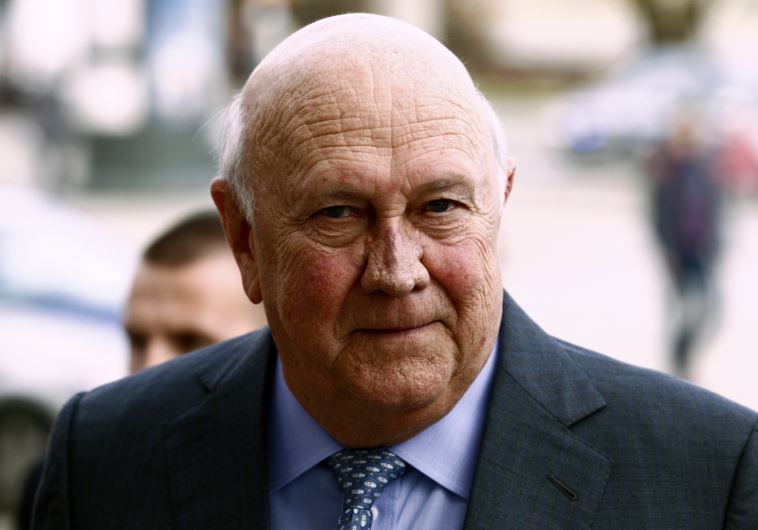De Klerk in Israel says: The most intractable problems can be resolved by strong statesmen
Former South African president pays tribute to Rabin in lecture to Berl Katznelson Foundation conference on combating racism at Tel Aviv University.
 South Africa's former president Frederik Willem de Klerk
South Africa's former president Frederik Willem de Klerk